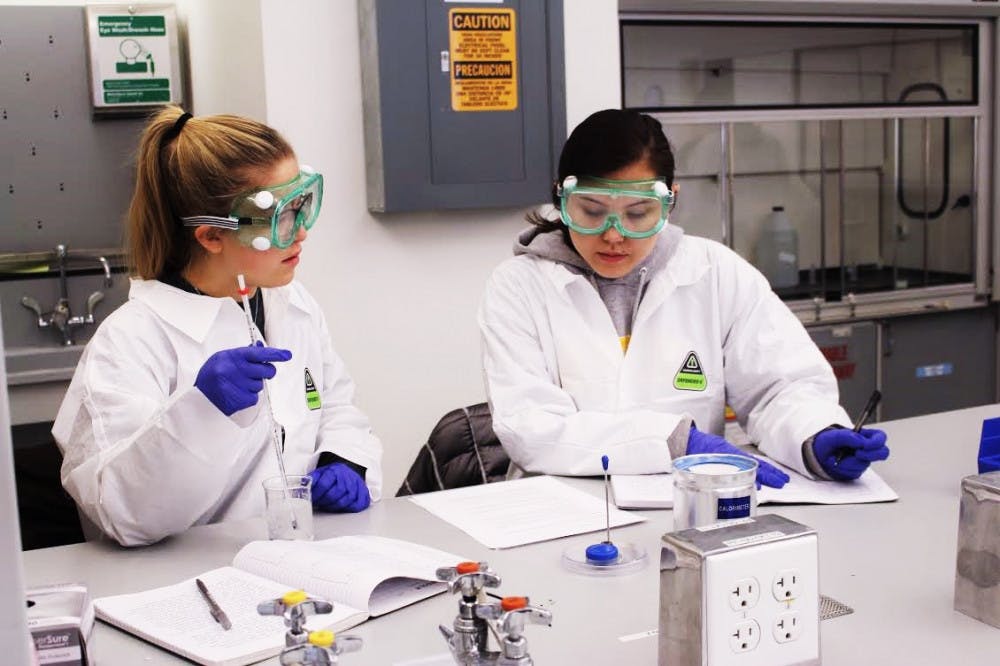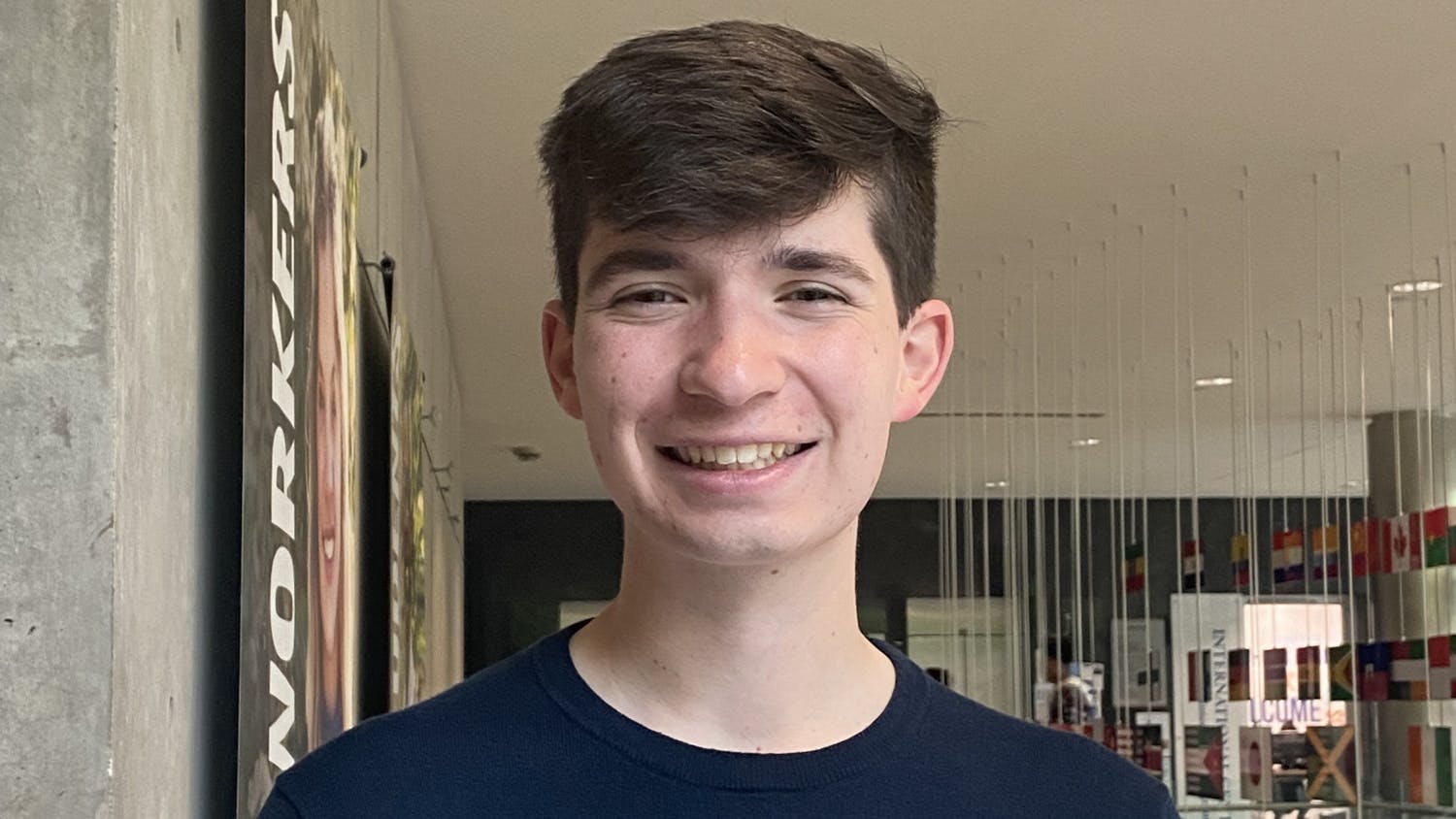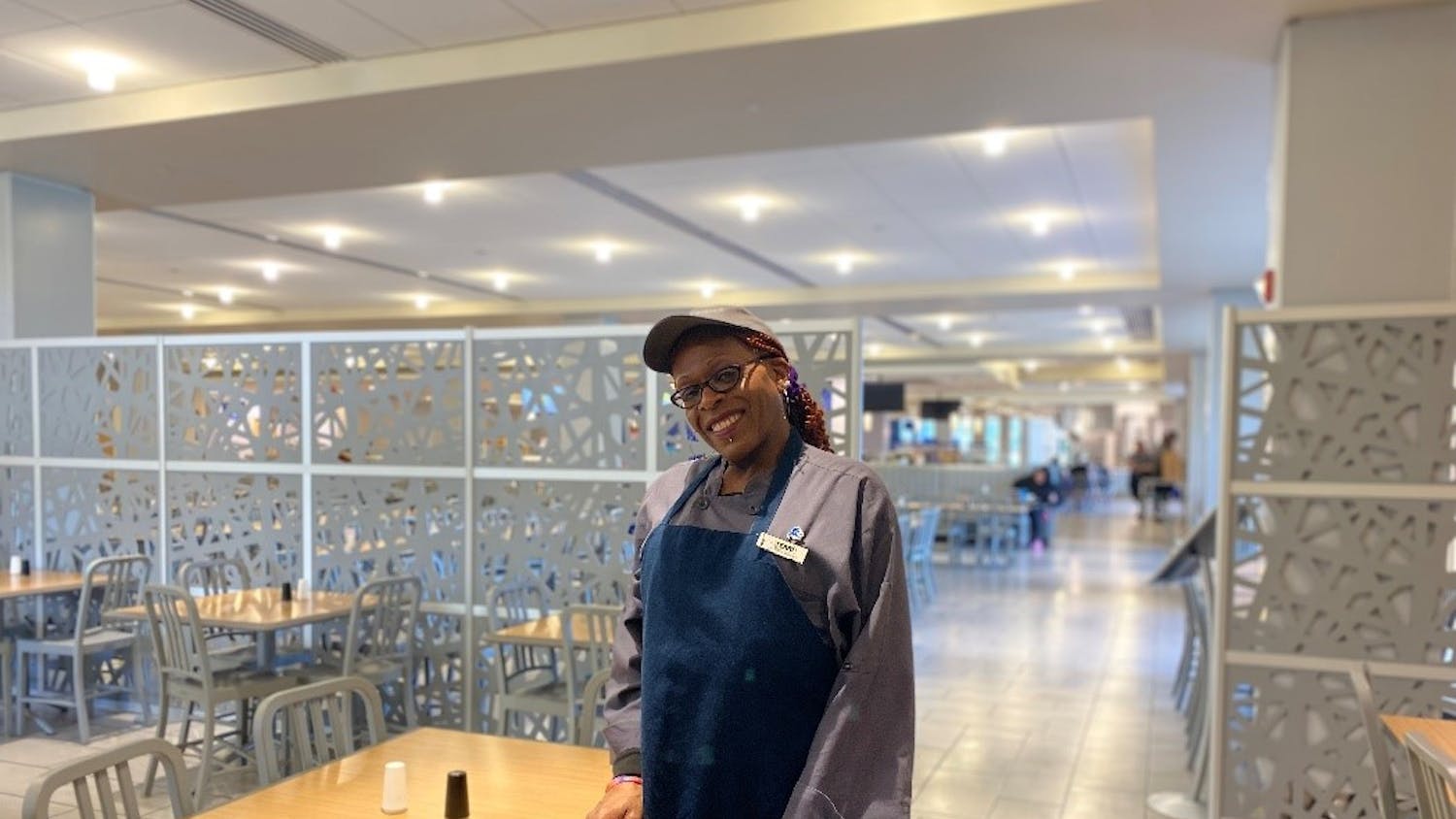NASA is offering 12 Seton Hall students the opportunity to join a summer fellowship in the New Jersey Space Grant Consortium (NJSGC) program.
The fellowship is open to any full-time student who wishes to conduct research pertaining to the Science, Technology, Engineering and Math (STEM) fields.
[caption id="attachment_22133" align="aligncenter" width="838"] Katherine Boland/Staff Photographer.[/caption]
Dr. Mehmet Sahiner, chair of the department of physics, serves as the principal coordinator of the fellowships and leads a faculty panel who will select the awardees.
Sahiner shared via email that the selected students will be granted a six week period during the summer to conduct their choice of research under the supervision of a faculty member. They will also receive a $2,000 stipend and an additional $500 to fund for equipment.
Students have until April 20 to send their research ideas in to Sahiner. Submission criteria, which must be sent directly to Sahiner, includes completing an application, forming a one page research proposal and selecting a faculty advisor who will supervise them. Recipients will be announced on May 15.
When asked what type of research projects would interest him, Sahiner shared it should be relevant to STEM, as well be able to produce results within six weeks.
“I think bringing these NASA Funded Grants for the SHU STEM faculty and students is crucial to enhance UG [undergraduate] STEM education at Seton Hall and I am committed to expand these programs,” said Sahiner. “As federal funding agencies are focusing to more and more UG oriented research the science is also shifting towards UG level. I strongly believe these SHU-NJSGC fellows are going to be the successful scientists of the future.”
Past awardees of the fellowship shared their research ideas and experiences while working in the NJSGC program.
Olivia Rodgers, a junior physics and biomedical engineering major, wrote in an email what her research project entailed.
“I work on improving the efficiency of cadmium based solar cells,” Rodgers said. “Our hypothesis was that by adding silver nanoparticles to cadmium based solar cells that it would improve efficiency and through our research it was discovered that it does in fact increase the efficiency! This is important because we need to start moving away from non-renewable sources of energy and improve upon renewable sources of energy such as solar power.”
In fact, Rodgers shared that she will be presenting her successful research in the American Physical Society Meeting in Los Angeles next month.
Michael Patullo, a junior physics and engineering major, was also granted a fellowship during the previous academic year. He shared in an email why he believes students should take advantage of this opportunity.
“The New Jersey Space Grant Consortium is an impressive fellowship to apply for and one even more humbling to receive,” Patullo wrote.
“Working in a NASA program has even opened up other internship opportunities with executive agencies like the Department of Defense, Department of Energy, and Department of Justice in laboratories all over the nation.”
Hannah Sakha can be reached at hannah.sakha@student.shu.edu.
Katherine Boland/Staff Photographer.[/caption]
Dr. Mehmet Sahiner, chair of the department of physics, serves as the principal coordinator of the fellowships and leads a faculty panel who will select the awardees.
Sahiner shared via email that the selected students will be granted a six week period during the summer to conduct their choice of research under the supervision of a faculty member. They will also receive a $2,000 stipend and an additional $500 to fund for equipment.
Students have until April 20 to send their research ideas in to Sahiner. Submission criteria, which must be sent directly to Sahiner, includes completing an application, forming a one page research proposal and selecting a faculty advisor who will supervise them. Recipients will be announced on May 15.
When asked what type of research projects would interest him, Sahiner shared it should be relevant to STEM, as well be able to produce results within six weeks.
“I think bringing these NASA Funded Grants for the SHU STEM faculty and students is crucial to enhance UG [undergraduate] STEM education at Seton Hall and I am committed to expand these programs,” said Sahiner. “As federal funding agencies are focusing to more and more UG oriented research the science is also shifting towards UG level. I strongly believe these SHU-NJSGC fellows are going to be the successful scientists of the future.”
Past awardees of the fellowship shared their research ideas and experiences while working in the NJSGC program.
Olivia Rodgers, a junior physics and biomedical engineering major, wrote in an email what her research project entailed.
“I work on improving the efficiency of cadmium based solar cells,” Rodgers said. “Our hypothesis was that by adding silver nanoparticles to cadmium based solar cells that it would improve efficiency and through our research it was discovered that it does in fact increase the efficiency! This is important because we need to start moving away from non-renewable sources of energy and improve upon renewable sources of energy such as solar power.”
In fact, Rodgers shared that she will be presenting her successful research in the American Physical Society Meeting in Los Angeles next month.
Michael Patullo, a junior physics and engineering major, was also granted a fellowship during the previous academic year. He shared in an email why he believes students should take advantage of this opportunity.
“The New Jersey Space Grant Consortium is an impressive fellowship to apply for and one even more humbling to receive,” Patullo wrote.
“Working in a NASA program has even opened up other internship opportunities with executive agencies like the Department of Defense, Department of Energy, and Department of Justice in laboratories all over the nation.”
Hannah Sakha can be reached at hannah.sakha@student.shu.edu.

Comments




